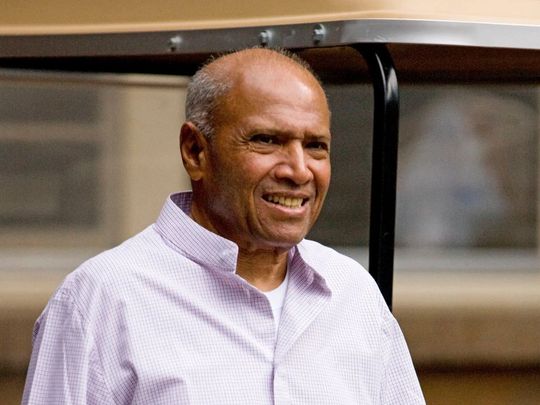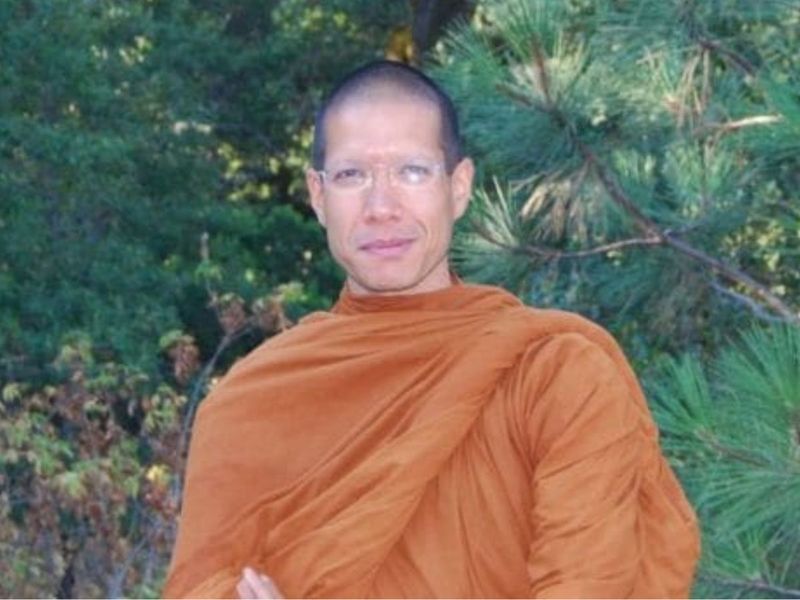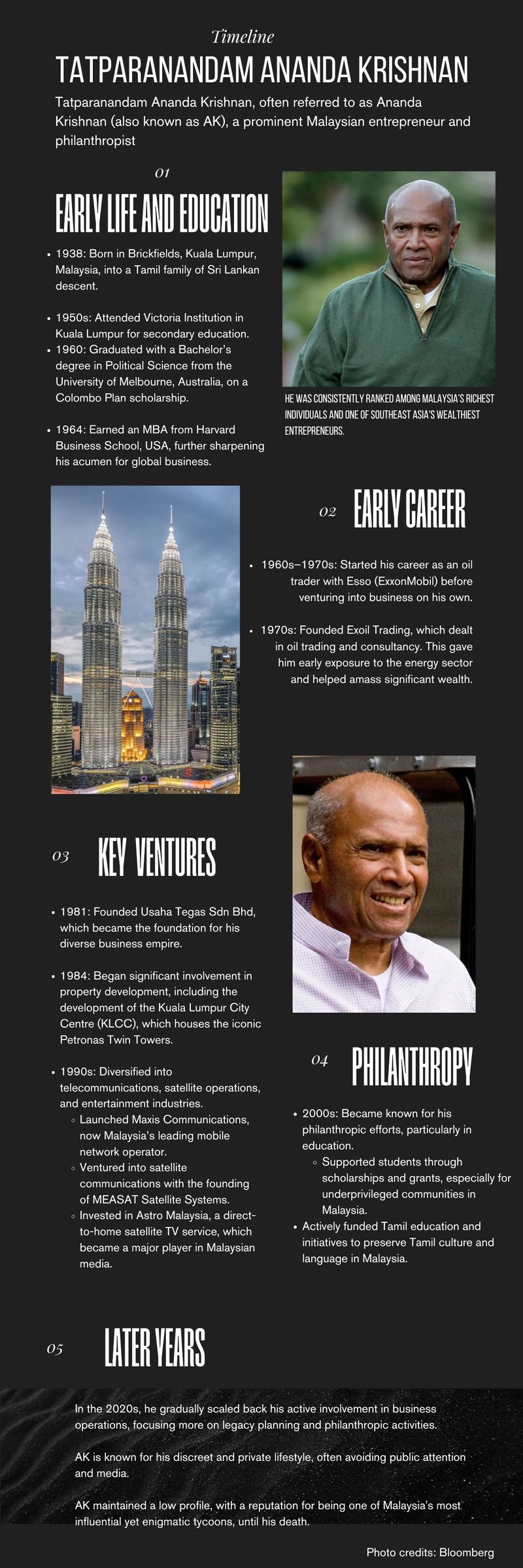
Ananda Krishnan, Malaysia’s billionaire titan who built a sprawling empire across telecommunications, oil, media, and real estate, passed away on Thursday (November 28, 2024), local media reported.
He was 86.
Known for his audacious ventures and philanthropy, Ananda Krishnan (often referred to as “AK”) was listed as Malaysia’s seventh-richest person by Forbes (as of April 15, 2024). His life story reads like a masterclass in vision and entrepreneurship.
Krishnan’s investment firm confirmed his passing, highlighting in a statement the “significant contributions to nation building and the corporate world” and how his philanthropy “touched many lives.”
Krishnan is credited for reshaping Kuala Lumpur’s Skyline, and is described by Bloomberg as an elusive billionaire who built a reputation as a savvy businessman and who was close friends with former leader Mahathir Mohamad.
A backer of the iconic Live Aid concert and a driving force behind the towering Petronas Towers, AK was a man who dared to dream — and delivered.
Yet, his most fascinating legacy might not be his business achievements, but a story that transcends wealth: his only son, Ven Ajahn Siripanyo.
The billion-dollar renunciation
Siripanyo, born and raised amid London’s affluence and connected to Thai royalty through his mother, made a decision that left the world in awe.
At 18, he turned away from a $5 billion inheritance to walk the austere path of a Buddhist monk. His journey from heir to monk shocked many.
But it was a choice deeply rooted in his father’s spiritual influence and his own search for meaning.
A family source told The South China Morning Post, “Ajahn Siripanyo’s choice was entirely his own, and it is respected within the family.”
Retreat
What began as a temporary retreat in Thailand became a life’s calling. Today, Siripanyo serves as the abbot of Dtao Dum Monastery, a serene sanctuary nestled near the Thailand-Myanmar border.
His life of quiet reflection, far removed from corporate boardrooms, stands as a profound counterpoint to his father’s high-flying career.
Siripanyo’s journey mirrors the essence of Robin S. Sharma’s The Monk Who Sold His Ferrari, offering a profound real-life embodiment of its themes.
Just as Julian Mantle, a high-powered lawyer in Sharma’s tale, abandons his lavish lifestyle in pursuit of spiritual fulfillment, Siripanyo made a similarly radical choice.
While The Monk Who Sold His Ferrari is a parable about finding balance and purpose beyond material success, Siripanyo’s path is a living testament to this philosophy.
Contentment, contemplation
His decision reflects a deep understanding that true contentment is not tied to possessions or status but lies in inner peace and spiritual growth. Siripanyo’s life, dedicated to quiet contemplation in a monastery near the Thailand-Myanmar border, offers a powerful reminder that the pursuit of meaning often requires letting go of the very things society holds dear.

A tale of contrasts
Krishnan’s passing marks the end of an era, but it also highlights a story of contrasts — where corporate ambition meets renunciation of wealth for greater enlightenment.

AK empire, spanning continents and industries, is now part of history. Meanwhile, his son’s journey continues, a living testament to the idea that true wealth lies beyond riches.
In a world dazzled by fortune and power, the Krishnan family’s story is a reminder that the greatest legacies are often forged in choices that defy expectation.
In 2003, Usaha Tegas established the Harapan Nusantara education fund, sponsoring 100 students annually for programs at private universities partnered with foreign institutions.
In 2004, the company launched the Yu Cai Education Foundation with a $6.6 million grant to support ethnic Chinese groups. Two years later, Astro, Krishnan's media company, introduced a scholarship program allocating RM2 million annually to assist Malaysian students pursuing media and broadcasting studies.
In 2008, Krishnan supported the establishment of the Montfort Girls Centre, helping orphaned and underprivileged girls gain vocational skills. His philanthropic efforts earned him recognition in 2010 on Forbes' list of 48 Heroes of Philanthropy.
In January 2015, Krishnan and Usaha Tegas launched the Yu Cai Foundation (YCF). YCF offers scholarships to students in Mandarin-based schools and funds institutions promoting vernacular languages, particularly Mandarin and English.












